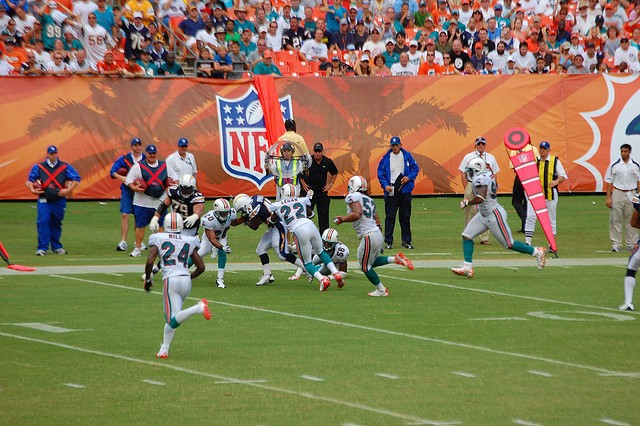Are You Ready For Some Fully Taxable Football?

Big news for NFL fans: in a move that multiple news sources call “largely symbolic,” the National Football League has decided to eliminate its tax-exempt status and become a fully taxable entity.
Yes, the NFL was previously a non-profit, although as CNN Money explains, it’s a little more complicated than that:
While the league is tax-exempt, the $1 billion or so it makes a year is distributed to the 32 teams, all of which do pay taxes.
What about the rest of our major sports leagues and associations? Are they tax-exempt too? Bloomberg has the answer:
The NFL’s move mirrors one made by Major League Baseball in 2007. The National Basketball Association never was tax exempt. The National Hockey League is now the only major professional sports league in North America with the status.
The Internal Revenue Code specifically provides a tax exemption to “professional football leagues” under section 501(c)(6), the same portion of the law used by the U.S. Chamber of Commerce.
So how much money did the NFL save with its former tax-exempt status? Back to CNN Money:
The league saved only about $10 million a year from the tax break, according to the Citizens for Tax Justice. That’s a rounding error for an enterprise the size of the NFL.
Got it. Only $10 million a year. That’s… well, there must be a reason why the NFL has elected to give up even the miniscule amount of $10 million a year, right? What prompted the change in tax status?
Nearly every news site shared the same explanatory quote, so I’ll cite Slate:
Robert McNair, chairman of the league’s finance committee and owner of the Houston Texans, released a statement saying that the move was meant to clear up the fact that NFL franchises are actually being taxed as normal businesses.
“The owners have decided to eliminate the distraction associated with misunderstanding of the league office’s status,” his statement said.
But Slate (and Bloomberg, and CNN Money, and USA Today) all list a different reason for the change in tax status. I’ll cite Slate again:
As several commentators have noted, though, the move means that [NFL Commissioner Roger Goodell] will not have to report his salary — he made $44 million in 2012 and $35 million in 2013 — which invariably gets brought up every time he screws something up, which is quite often.
For the football fans among us: what else do we need to know about the NFL’s change in tax status? Do you think it was a decision that was primarily made to get out of the salary reporting requirement, or is it all about eliminating distractions? And will fully-taxable football benefit the league and its teams in the long run?
Photo credit: Mr. Usaji
Support The Billfold
The Billfold continues to exist thanks to support from our readers. Help us continue to do our work by making a monthly pledge on Patreon or a one-time-only contribution through PayPal.
Comments